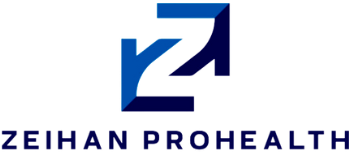
UArizona-Primary Preventive Mobile Health Unit
Objective:
The University of Arizona, in collaboration with the U.S./Mexico Border Health Commission, set out to meet the healthcare needs of underserved, underrepresented, and undocumented individuals and families, particularly within Hispanic/Latino communities in both urban and rural areas. The primary goal was to provide access to essential primary preventive health services, health education, and connections to Federally Qualified Health Centers (FQHCs) to establish long-term medical care for participants.
Solution:
To achieve this, the University of Arizona College of Public Health launched two Mobile Health Units in 2015, located in Tucson and Phoenix. These units were equipped to deliver a wide range of preventive health screenings, educational resources, and referrals directly to the communities that needed them most. The program also prioritized community outreach and engagement events, where the Mobile Health Units actively connected with local residents, fostering trust and building relationships.
During these events, the Mobile Health Units collected data from participants, which was securely stored in a health record database. This data collection process was designed to be both HIPAA-compliant and culturally sensitive, ensuring the confidentiality and protection of participants’ personal information. The data gathered was instrumental in gaining deeper insights into the health needs of the community, identifying gaps in services, and understanding barriers to care.
Outcome:
The initial success of the Mobile Health Units in Tucson and Phoenix paved the way for the program's expansion, which now includes 13 Mobile Health Units operating across various states in the U.S. These units have significantly enhanced access to primary preventive healthcare for underserved populations, offering critical health screenings, education, and referrals to thousands of individuals. The program’s robust data collection efforts have been pivotal in informing service delivery and improving health outcomes.
The collected data not only served immediate clinical purposes but also provided valuable insights for scientific research. This research was shared with other community members and stakeholders to raise awareness about health equity issues and to drive action towards closing the gaps in healthcare access within distressed communities. The findings from the data have been used to build collaborations with local stakeholders, including healthcare providers, community organizations, and policymakers, to develop targeted interventions that address unmet needs and reduce barriers to care.
Impact:
The Mobile Health Units have had a transformative impact on improving health outcomes for underserved Hispanic/Latino populations in urban and rural areas. By providing accessible preventive care and linking participants to permanent medical homes, the program has helped reduce health disparities and promote continuity of care. The expansion from two to 13 Mobile Health Units reflects the program's success and its scalable model, which has become a vital resource for addressing the healthcare needs of marginalized communities across the United States.
In addition, the program’s emphasis on data-driven insights has not only improved service delivery but also contributed to the broader public health discourse. By sharing research findings with community stakeholders and using the data to advocate for health equity, the initiative has raised awareness and fostered collaborations that are essential for bridging gaps in healthcare access and achieving long-term, sustainable improvements in community health.
